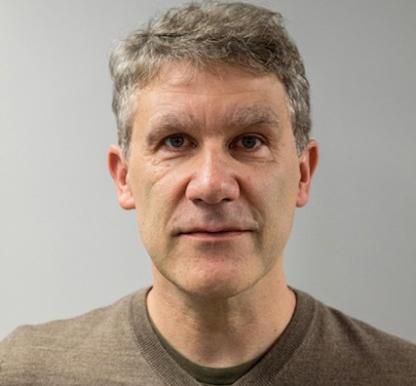This content mentions suicide or suicidal thoughts, self-harm, substance abuse and addiction (which may include mentions of alcohol or drug use), depression and anxiety. Please read with care. There are details of where to find help at the bottom of this page.
Over 20 years ago, my good friend and flatmate died by suicide.
We knew he was under pressure to finish his degree. We knew he was drinking too much. In retrospect, the signs were all there. But he never felt able to talk about his stress or his suicidal thoughts to his family, girlfriend or friends. And so our campaign this month makes me reflect upon how far we still have to go. It is difficult for anyone to open up to others but it is so difficult for men as too often in our culture it is seen as a personal weakness or dismissed as pressures of everyday life.
To really improve things, we need to do three things: we must address the conditions that create stress; we must shift the culture so that men feel that it is safe and acceptable to seek help; and we must ensure that when men do speak up they get a compassionate and helpful response from friends, families, colleagues and services. This month’s campaign is about shifting the culture but with some clear directions for action.
Stress is a critical social problem. It leads to suicides and mental health problems. It damages the lives of people who are affected, it also has a wider impact upon families, friends and colleagues. Men can be particularly affected. This is partly due to the stressful situations and workplaces where they spend time, but they are also less willing to seek help when they experience overwhelming pressure and loss of control in their lives. Chronic stress is even more damaging and leads to major physical illness.
Our research shows that over one-third of men have felt so stressed that they have had suicidal thoughts. Rather than turn to those close to them, too many men turn to alcohol: nearly one-third of men use alcohol to cope. This creates a vicious cycle exacerbating depressive and anxious thoughts and feelings. The result is that Scotland has one of the highest rates of suicides across the UK and some of the highest rates of self-harm, violence, mental illness and premature mortality in Europe.
We all have a responsibility to do what we can to change this. Employers and policymakers must address the social conditions that lead to stress. We must challenge poor workplace conditions, precarious employment contracts, poverty, debt and punitive welfare systems. These are all ingredients that combine to create toxic conditions for stress.
But stress is something that everyone has to deal with at stages of their life. So we have to shift the culture so that men can be open and comfortable disclosing when the pressure gets too much and seeking help. It is too easy to belittle stress and confuse it with pressure, weakness or a lack of personal resilience.
In practice, we can start in schools. In this formative stage for boys, mental health and well-being should be at the heart of what they learn. We will also lobby the media to take stress seriously. And we will encourage workplaces to be responsive and compassionate to all staff.
If you are feeling like ending your life or feel unable to keep yourself safe, please call 999 or go to A&E and ask for the contact of the nearest crisis resolution team. These are teams of mental health care professionals who work with people in severe distress. If you feel affected by the content you have read, please see our get help page for support.
Suicide prevention
There are things we can all do in situations where we are worried about someone who we think may be at risk of suicide. Talking can really make a difference.
A-Z Topic: Suicidal thoughts
If you’re feeling suicidal, you’re not alone: one in five of us think about suicide in our lifetimes. Remember that these feelings won’t last. There is help available to keep you safe now and to help with the problems that may be causing your suicidal feelings.
A-Z Topic: Men and mental health
In England, around one in eight men has a common mental health problem such as depression, anxiety, panic disorder or obsessive-compulsive disorder (OCD).
A-Z Topic: Stress
Stress is the feeling of being overwhelmed or unable to cope with mental or emotional pressure.
